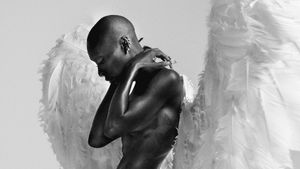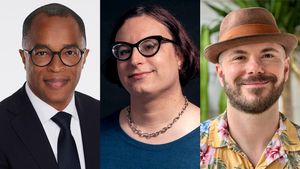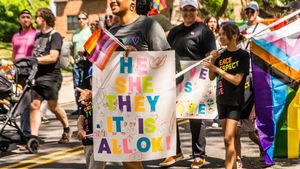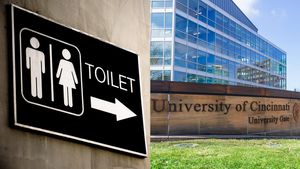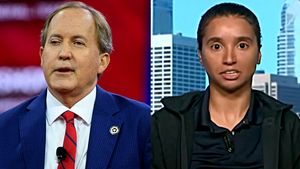Marvel's latest superhero offering, Black Panther, has been hailed as a groundbreaking film for diversity in a genre that is, too-often, overwhelmingly white. However, the film has also been criticized for erasing the queerness of Ayo, a character who is officially queer in the Black Panther comics. It's the latest of controversies that reflects geek culture's larger problem with how it displays queerness.
Whenever a queer character is featured in any aspect of pop culture, it's usually pretty obvious. They might have a major storyline or a kiss with their love interest that everyone ends up talking about. (Recent examples include the recent, history-making kiss between Nico and Karolina in Marvel's TV show Runaways or Elena's coming out storyline in One Day at a Time.)
These moments are celebrated by queer fans because they make them feel seen and validated. While there is nothing wrong with wanting queer characters to kiss or have entire story arcs (because we deserve to have these things as much everyone else), this expectation limits how queerness is portrayed onscreen and makes queerness seem like a spectacle instead of normal.
In 2015, Marvel's Agents of SHIELD introduced a gay character in a subtle way that didn't erase his queerness or make it a big event. The character, Joey Guiterrez, has the power to melt metal. After being taken to SHIELD, one of the doctors tries to calm Joey by saying that she knows he is a good guy that doesn't want to hurt anyone. When Joey replies that they don't know anything, the doctor replies, "I know your ex-boyfriend was a health nut."
Even though this might not seem as noteworthy as say, a romance scene, it doesn't negate the fact that Joey is probably one of Marvel's first queer characters in their cinematic universe. In the case of Black Panther's Ayo, the film could've had Okoye say to T'Challa, "Maybe once you stop freezing up with Nakia, you two could double date with me and Ayo, my king."
Besides normalizing queerness, having more subtle mentions would also allow creators to avoid offensive portrayals of queer identities and make room for other queer identities. Instead of having a surprise reveal with a trans character, they could simply state, "I'm shopping online for binders. Want me to order lunch while I'm at it?"
When it comes to improving the depiction of queer identities, a subtle reference could also undo the straight-washing of certain characters. One of the most notable examples is the character Jughead on Riverdale, who is on the ace spectrum in the Archie comic books. Whether or not Jughead is both asexual and aromantic has yet to be confirmed, but it would be interesting for him to do so by saying something along the lines of, "I find juicy burgers sexually attractive, but not people."
A successful example of subtle queer portrayal that has undone some straight -washing is in a recent episode of DC's TV series Legends of Tomorrow. The episode, "Daddy Darhkest," managed to show the bisexuality of the character John Constantine by having him hit on Leonard Snart and hook up with Sara Lance later on. While this wasn't a perfect depiction, it was an improvement compared to how Constantine's bisexuality was brushed aside in NBC's live-action Constantine series.
Although it's awesome when we have queer characters with story arcs or romance scenes, there should also be smaller mentions of queerness too. Subtle mentions of queerness could show that there is more to queer people than being queer and open the door for better portrayals of queer characters. It's great to see queer characters being queer, but they should also be allowed to just be.













































